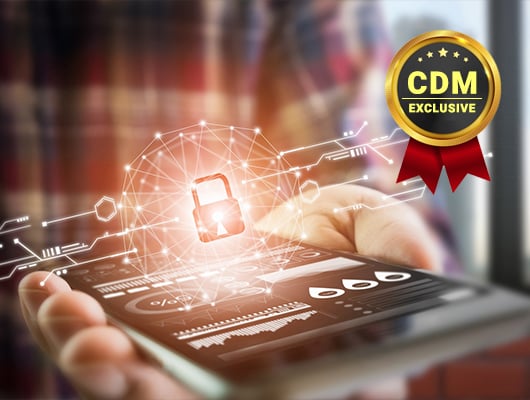By Ben Hartwig, Web Operations Executive, InfoTracer
Online retail fraud continues to rise year on year. Fraudsters are becoming more sophisticated and although we can put more and more consumer protection laws in place for protection, there is always a risk when providing your personal information online.
Even if apps and stores that have access to your credit card or other details take measures to keep data safe, there is always the chance that hackers can steal data to use, or sell on the dark web. The risks are very real, but there is plenty you can do to mitigate these risks.
Online shopping – The Process and The Risks
Online shopping has made all of our lives that little bit more simple, and though people are venturing out less to buy items in real life, online business is booming. It is as simple as finding what you want and entering your card details, but there are still a lot of risks with this.
Financial fraud can take a number of forms, you may pay for an item and never receive it, receive something fake, or even have more money than you authorized taken. Even if you don’t get money taken, your details may be stolen and sold on the dark web, or used for identity theft. This can have grave impacts further down the line.
There are scary cybersecurity statistics out there to show how much of an issue this is. The University of Maryland study says that hackers attack every 39 seconds, on average 2,244 times a day.
What to Be Aware of When Shopping Online
There are many signs you can use to try and establish whether a store is genuine or not. Naturally, if you have heard of the store or used it successfully before this is a big benefit. Other signs include:
- Unsecure connections – HTTPS domains and a padlock sign in the browser (not on the website) are secure.
- Wi-Fi warnings. Wi-Fi networks may warn you when a site is not trustworthy.
- Unusual domains with extra hyphens or characters.
- Crazy pricing. If it sounds too good to be true, it probably is.
Other Apps That May Cause Fraud
There are not just issues when shopping online, using other applications can leave you susceptible to fraud. For example, fake applications such as banking or investment apps, gaming apps that charge fees and take payments, and other types of applications where you fill in personal details.
Fake applications are becoming a huge problem, too, as so many people get fooled by similar branding to trusted apps.
How to Protect Your Money Online: Basic Rules
There are a few things you should always do when looking to protect your money online.
- Only download applications you know you can trust, with security certificates.
- Ensure you have antivirus software if you are using a laptop.
- Always have a secure password that you don’t use for each and every site.
- Double-check every site or app is trustworthy before entering your details.
Security Tips for Online Shopping
Here are some of the top security tips for online shopping:
- Ensure that you have the most up to date browser, antivirus, and operating system as this is the only way to ensure you have an option that is familiar with the most recent threats and advances in technology used by the hackers.
- Check that the address you are buying from is real, not a fake or scam URL.
- Where you can, buy from a mobile device, not a PC, as these are less susceptible to viruses that can steal your data.
- Use a credit card rather than a debit card as these will keep you more protected using chargeback schemes, which can help you to get the money back if you fall foul of fraud.
- As well as having secure passwords and different passwords, keep all of your passwords safe with a password manager, this can be done for you within Apple devices’ password keychain.
- Don’t purchase anything from a cold email. In fact, don’t even click on the links. If you get an email claiming to be from a company, google them first to get their secure site and see if anyone has had issues with the company before. If you get an email about an offer and you think it is trustworthy it is still worth performing an email lookup to check the trustworthiness.
- Keep records of all the transactions you carry out as this can help you to make claims in the future if you need.
- Don’t keep a lot of private information on your smartphone or any one device, if this device is stolen it can be a goldmine for hackers or for criminals.
- If a store online is asking for a lot of private information, consider why this might be the case. All they should need is a name, shipping, and billing address, and your card details.
What to Do If You Fall into a Fraud Trap?
It isn’t something to hide or be ashamed of if you fall into a trap. Fraudsters are undeniably becoming more and more sophisticated.
Report the fraudulent activity to your state consumer protection office who might be able to take action, and consumer protection law is also moderated by the bureau of consumer protection. You might be able to take legal action.
If you have purchased something on a credit card or PayPal, you might also be able to request a chargeback, due to not receiving the item. This depends on the type of retail fraud, and some identity fraud might be less straightforward.
Conclusion
This all comes down to vigilance. Keep a close eye on your bank account and anyone who might receive your details on a daily basis. It is always worth doing some due diligence on a new website or app you are downloading or purchasing from, and this can help you to avoid falling into financial traps and having money, or your details, fraudulently taken from you.
About the Author
 Ben Hartwig is a web operations director at InfoTracer. He authors guide on marketing and entire cybersecurity posture and enjoy sharing the best practices. You can contact the author via LinkedIn.
Ben Hartwig is a web operations director at InfoTracer. He authors guide on marketing and entire cybersecurity posture and enjoy sharing the best practices. You can contact the author via LinkedIn.


